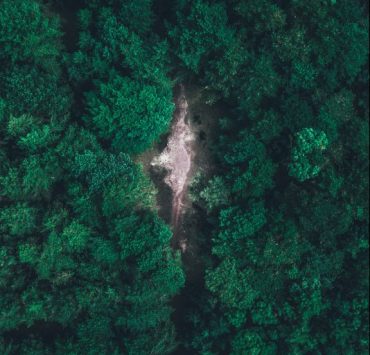
Chioma Phillips is the Editor of Msingi Afrika Magazine and…
Read Next
Ahmed gate at the entrance to Marsabit National Park is named after the bull elephant that lived there in the 1960s and 70s. The name Ahmed is an Arabic name meaning ‘one who is highly praised’ or ‘one who thanks God continually.’ I don’t know which one they attached to this particular pachyderm, but this Ahmed was famous for having tusks so long that he could (and did) rest his head on his tusks.
Known to many as the King of Marsabit, it is said that he had two young bull elephants for personal bodyguards who accompanied him on his strolls through the bush, watching out for him and pushing back any that came towards him aggressively.
Ahmed the elephant and his massive tusks captured the attention of multiple filmmakers from the US and France in 1970 and as a result of his moments in the spotlight, a letter-writing campaign was started where Kenyan school children wrote to Jomo Kenyatta asking him to protect Ahmed from poachers. The president declared Ahmed a living monument, accorded him presidential protection and the giant tusker was then watched over by five armed rangers 24 hours a day for the rest of his life. Upon his death, during the autopsy, they found several antique bullets lodged in his body, a great validation for his personal security in his latter years. He was the most famous elephant in the world.
He died four years later at the age of roughly 65. It is said that he died of natural causes and he was found peacefully leaning against a tree. Afrikan elephants live to about 70 years of age on average and so this was an easy story to accept. However, according to a book by Steve Smith, a hunter, author and publisher, Ahmed had disappeared for a few days and when he was discovered; a recent bullet hole was found in his stomach and was thought to have caused peritonitis and the bull’s subsequent death. This he says he was told by Peter Wain, manager of Zimmerman’s Ltd, the taxidermist hired to preserve the remains. As the story goes, when Peter reported his findings to the government, they thought it best to suppress the story.
Ahmed’s tusks weighed 67 and 68 kilograms and were 3 meters long. People had expected these to be larger based on how they extended to the ground. According to Wolfang Schenk the taxidermist who worked for Zimmerman’s and was charged with taking care of Ahmed’s remains, the elephant was actually smaller in stature than many thought, giving his tusks the appearance of being massive in size when in fact they were not as large as they had appeared.
Ahmed was said to have been a gentle and good-natured elephant and on his death, the decision was made to preserve the remains for future generations. Unfortunately, the hide was unusable and so instead they opted to make a life-size sculpture. The sculpture can be found outside the Nairobi National Museum and his skeleton and tusks inside it.
Subscribe now for updates from Msingi Afrika Magazine!
Receive notifications about new issues, products and offers.
What's Your Reaction?
 PIN IT
PIN ITChioma Phillips is the Editor of Msingi Afrika Magazine and the host of Msingi Afrika Television. Her hope is to see the Truth shared, with all who will listen, for the transformation of the people and the continent of Afrika - and the world. She believes passionately in the critical role that Afrika and Afrikans have to play on earth right now and hopes to ignite the spark that will cause them to see and believe who they are, so that they can live out their Truest lives for the remainder of their days.





















